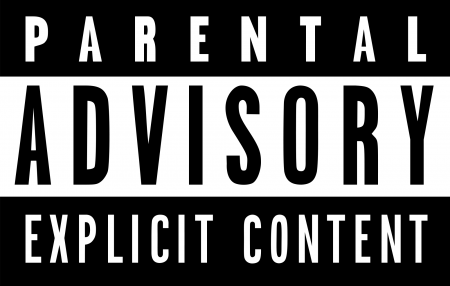Please be advised
A phrase that presents a Cartesian problem in any language: if your audience has the intellectual capacity to read and comprehend your prose, Q.E.D. by doing so it must be being advised, becoming aware, or taking note of what you have to say. If it is not reading your prose, then asking it to do so when, transparently, it isn’t, won’t make a damn of difference.
|
Towards more picturesque speech™
 PARENTAL ADVISORY: NOT IDIOMATIC ENGLISH
|
“I told you to pay attention.”
“Perhaps; but when you told me to pay attention — if indeed that is what you did — I wasn’t, well, paying attention.”
So, you needn’t say please be advised, please be aware, or please note, or “PARENTAL ADVISORY”. This we can sum up in the famous Latin maxim: animadverto ergo scio:[1] “I am paying attention, therefore I am aware”.
Please be advised also fails quite badly if any part of your objective is to gently persuade, or provoke in your audience a sentiment that isn’t outright resentful. No-one likes being hectored. No-one likes being addressed like a wanton child. If your correspondent is your client, and you are not in the process of closing them out, you might like to think about,
“Hi Jeff,
Hope all is well. I am just writing to let you know that —”
References
- ↑ It’s not actually a famous Latin phrase. I made it up, with my secret Latin advisor’s help.